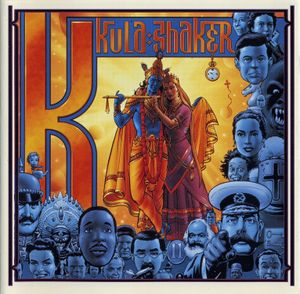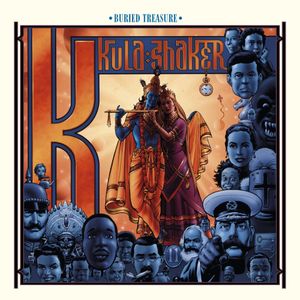

Kula Shaker
Follow Your Favorite Band Today!
Top Kula Shaker Community Posts
Story of Kula Shaker
Kula Shaker: A Psychedelic Rock Odyssey Infused with Indian Mysticism
Kula Shaker, the English psychedelic rock band fronted by the charismatic Crispian Mills, emerged during the late 1990s, carving their own path within the post-Britpop landscape. Their sound, a captivating blend of Western rock and traditional Indian influences, catapulted them to commercial success in the UK between 1996 and 1999.
Their debut album, "K," stormed the UK Albums Chart, reaching the coveted number one spot. The album's impact was cemented by its inclusion in Colin Larkin's prestigious "All Time Top 1000 Albums" list, where it claimed the 879th position. The band's signature sound, a vibrant fusion of guitar-driven rock and traditional Indian instruments like the sitar, tamboura, and tabla, captivated audiences with its unique sonic tapestry.
Their chart-topping singles, including "Tattva," "Hey Dude," "Govinda," "Hush," and "Sound of Drums," showcased their ability to seamlessly blend their distinct musical influences. "Tattva" and "Govinda," in particular, stand out with their Sanskrit lyrics, highlighting the band's profound interest in Indian culture and mysticism. The very name "Kula Shaker" pays homage to the 9th-century Indian king Kulasekhara, further emphasizing their deep fascination with Indian spirituality.
Despite their commercial achievements, Kula Shaker faced a barrage of criticism from certain corners of the music press. Simon Price of The Observer, for instance, notoriously labeled them a "joke band" in 2014. However, the band's dedicated fanbase and enduring influence on the psychedelic rock landscape attest to their lasting impact. Their unique blend of Eastern and Western sounds continues to inspire and captivate listeners, cementing their place as one of the most distinctive and influential acts to emerge from the Britpop era.
Frequently Asked Questions
Bands you may like
More Psychedelic Rock Bands
Discover more bands in the Psychedelic Rock genre and explore the diverse sounds that define this musical style.
Browse All Psychedelic Rock BandsMore Bands from United Kingdom
Discover the rich musical heritage of United Kingdom and explore bands that represent the country's unique sound and culture.
Browse All United Kingdom Bands







